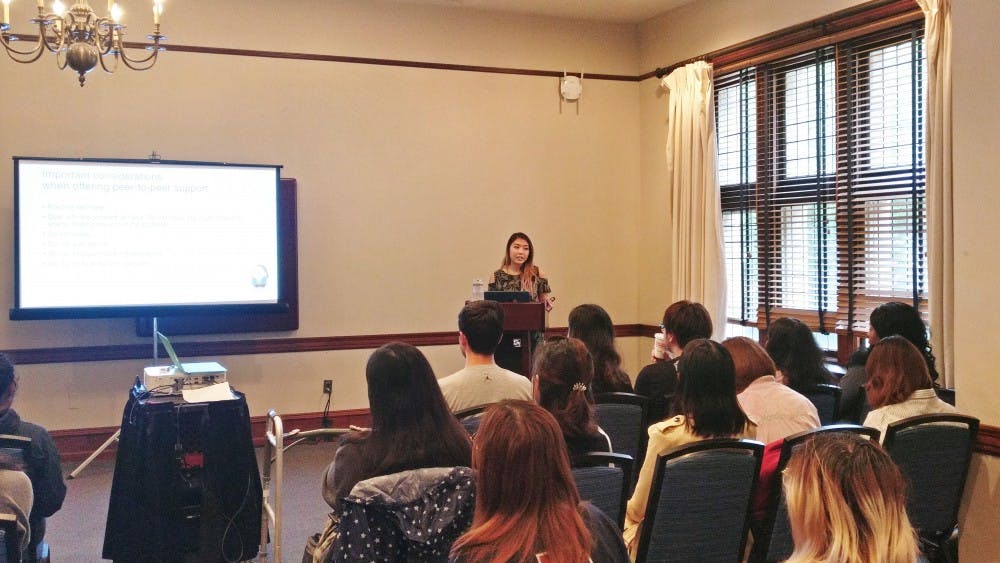A semester after the launch of Penn Franklins, the graduate student peer support group, the organization continues to struggle with low turnout despite the need to improve resources for graduate student mental health.
In September 2018, the Graduate and Professional Student Assembly launched the Penn Franklins group after GAPSA’s mental health survey showed that almost half of the graduate students who responded to their survey felt “so depressed it was difficult to function.”
While more than 60 graduate students originally joined the organization and attended the peer supporters training hosted in the fall, Penn Franklins Internal Director Matthew Lee, who is a fourth-year Nursing graduate student, said there are currently about 30 active members. Penn Franklins hosts walk-in sessions several hours each day three times a week.
Lee added that the student turnout for the group has been “close to none.” But, Lee said he is still optimistic and hopes to continue providing this resource for graduate students.
“The first semester is always hard because you’re building up your name recognition,” Lee said. “As we offer training, as people get more interested, we’ve managed to grab more people and it has spread through word of mouth.”
Franklins student counselors, who are called “peer supporters,” are trained by Counseling and Psychological Services staff to recognize signs and symptoms of mental health illnesses and receive a three-year certification from Mental Health First Aid, a national group that teaches skills to respond to signs of mental illness.
Penn Franklins External Director Mandy Lin, who is a candidate for a master’s degree in education, said the long wait times for CAPS services, irregular schedules for graduate students, and the stigma surrounding mental health has made it difficult for graduate students to seek help.
“Undergraduates receive a huge amount of support [for mental health] from administration. For grad students, these are things you have to organize on your own,” Lee said.
Lee also said he believes peer support is particularly beneficial for graduate students because they would be able to talk to someone who better understands the issues they face.
Asminet Ling, a fourth-year graduate student studying criminology, said she joined Penn Franklins as a peer counselor because she was interested in mental health and illness given her background in psychology as an undergraduate.
“Penn Franklins is right now the only real mental health support resource specifically for graduate students,” Ling said.
Ling added that unsupportive academic advisors could also add to the stressors graduate students face on campus.
Lee said he hopes to help establish a health and wellness officer in each of the 12 graduate schools to better communicate students’ mental health concerns to administrators and provide a list of mental health resources on campus. Lee said the health and wellness officers could also help spread awareness of the peer counseling group.
To increase accessibility to Penn Franklins, Lee said he has talked to the house deans in Sansom Place East, where many graduate students live, to host walk-in hours in the building. Lee added that Penn Franklins will also collaborate with the Graduate Student Center and attend mental health and well-being conversations on campus to bring greater awareness to the services the group offers.









